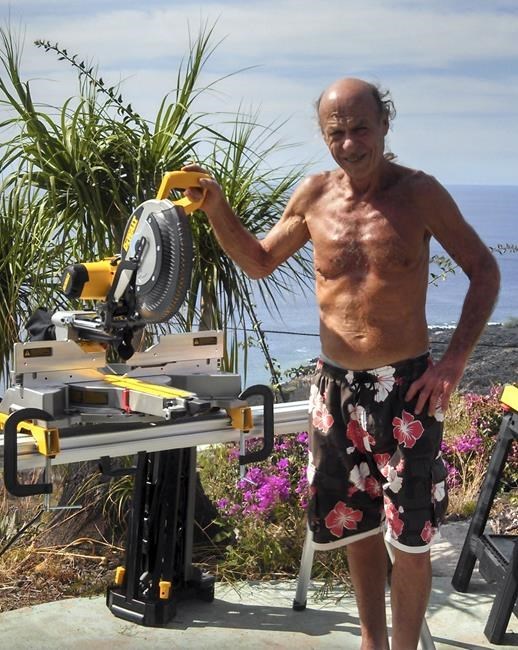HONOLULU (AP) — The death toll from the wildfire that destroyed the historic Hawaii town of Lahaina in August rose to 101 on Tuesday after Maui police confirmed the identity of one new victim, a 76-year-old man.
Maui police found Paul Kasprzycki's remains off a side street in an industrial area, Maui police spokesperson Alana Pico said in an email. They identified him by comparing X-rays taken before and after his death, she said.
A new cold case unit Maui police formed after the fire made the identification. There are now two people missing from the Aug. 8 blaze.
A childhood friend said Kasprzycki excelled as a carpenter and woodworker. Steve Brodersen, also 76, said Kasprzycki set up a small retail shop that doubled as an apartment after his children were grown.
He did “fantastic” work but mostly to satisfy his own interest, Brodersen said.
“He never marched to marketing on any given day,” he said.
Kasprzycki came to Hawaii while on a boat a race from Santa Monica, California, to Honolulu in the 1970s.
“He just never came back,” Brodersen said of his friend during in an interview from his home in Santa Ana, California.
Kasprzycki went to the University of Southern California, where he studied ancient history, Latin and philosophy. He was Phi Beta Kappa and graduated magna cum laude in 1969.
Brodersen told Kasprzycki that he should return to California, but he later came to realize that there were people in Lahaina who cared for him and took care of him.
Kasprzycki also had a bicycle that that he rode anywhere he needed to go, despite having a bad hip.
“Lahaina was actually the perfect setting for Paul,” Brodersen said.
The victims of the deadliest U.S. wildfire in more than a century ranged in age from 7 to 97, but more than two-thirds were in their 60s or older, according to Maui police’s list of known victims.
An after-action report released by Maui police earlier this month said 42 people were found inside buildings, 39 outdoors and 15 inside vehicles. One person was found in the ocean. Three others died from fire-related injuries while in a hospital.
Most were recovered in the first three days after the flames. Forensic experts and cadaver dogs sifted through ash searching for bodies that may have been cremated. Authorities collected DNA samples from family members to identify remains.
Some of the collected remains were as small as a quarter.
DNA testing allowed officials in September to revise the death toll downward, from 115 to at least 97. The toll rose slightly over the next month as some victims succumbed to their injuries or as police found additional remains.
__
Thiessen reported from Anchorage, Alaska.
Audrey Mcavoy And Mark Thiessen, The Associated Press



